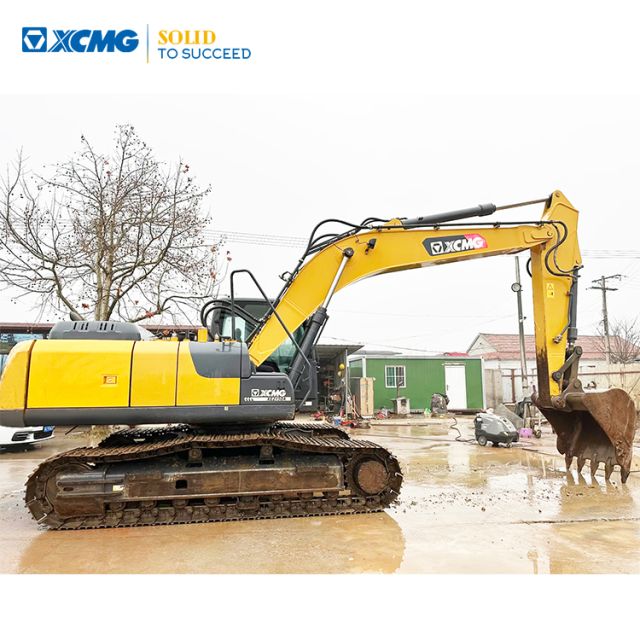The construction and heavy machinery industry thrives on reliable, versatile equipment. Among the most indispensable machines is the wheel loader, known for its efficiency in handling bulk materials, grading, and construction tasks. For businesses looking to maximize value, purchasing a used wheel loader can be a smart, cost-effective choice. This guide will walk you through everything you need to know to make an informed purchase decision.
Why Consider a Used Wheel Loader?
Investing in a used wheel loader provides significant savings without sacrificing performance. New equipment often comes with a hefty price tag, while pre-owned loaders offer similar functionality at a fraction of the cost. Many used wheel loaders are meticulously maintained, ensuring dependable operation for years. Additionally, these machines tend to hold their value well, making them a sound investment for companies seeking affordability and efficiency.
Key Applications of Wheel Loaders
Wheel loaders excel in a variety of industries, including:
- Construction and Infrastructure: Loading materials like gravel, sand, and debris into trucks.
- Agriculture: Handling bulk feed, manure, or grain.
- Mining and Quarrying: Moving heavy materials like rocks and ore.
- Waste Management: Loading and compacting refuse for disposal.
These versatile machines are critical for operations requiring strength, precision, and speed, making them an essential part of many businesses.
Factors to Consider When Buying a Used Wheel Loader
1. Machine Condition
Inspect the wheel loader thoroughly. Focus on key components like the engine, transmission, hydraulics, and tires. Look for wear and tear, leaks, or unusual noises that may indicate underlying issues. A well-maintained loader will exhibit minimal signs of degradation.
2. Service History
Request detailed maintenance records. These documents can reveal if the machine has undergone regular servicing and whether it has experienced any significant breakdowns. Consistent servicing often correlates with better long-term performance.
3. Operating Hours
A loader’s operating hours indicate its usage level. Machines with fewer hours are generally more desirable, but high-hour machines can still offer value if they’ve been properly maintained.
4. Brand Reputation
Popular brands like Caterpillar, Volvo, Komatsu, and John Deere are known for durability and easy access to spare parts. Choosing a well-established brand can reduce future repair costs and ensure reliable performance.
Types of Wheel Loaders to Consider
Compact Wheel Loaders
Ideal for smaller projects, compact loaders are highly maneuverable and versatile. These machines are perfect for tasks in urban settings or confined spaces.
Mid-Sized Wheel Loaders
Mid-sized loaders strike a balance between power and efficiency. They are commonly used in medium-scale construction and agricultural projects.
Heavy-Duty Wheel Loaders
For demanding applications such as mining and large-scale construction, heavy-duty wheel loaders offer unparalleled strength and capacity.
Benefits of Buying from Trusted Dealers
Purchasing a used wheel loader from a reputable dealer provides peace of mind. Dealers often offer warranties, thorough inspections, and after-sale support. Additionally, their inventory is usually well-documented, giving buyers confidence in the machine’s history.
Common Issues to Watch For
- Hydraulic System Leaks: Check hoses, seals, and cylinders for signs of leakage.
- Transmission Performance: Test for smooth shifting and consistent operation.
- Frame and Body Integrity: Examine the loader for cracks, rust, or structural damage.
- Attachment Wear: Inspect buckets, forks, and other attachments for excessive wear or damage.
Cost-Saving Tips for Buyers
- Negotiate the Price: Sellers are often open to negotiation, especially if the loader requires minor repairs.
- Bundle Attachments: Purchasing additional attachments with the loader can reduce costs compared to buying them separately.
- Consider Auction Sales: Auctions can be a great source of well-maintained used wheel loaders at competitive prices.
Maintaining Your Used Wheel Loader
Proper maintenance is crucial for extending the lifespan of your wheel loader. Establish a routine for:
- Regularly changing the oil and filters.
- Inspecting hydraulic systems for leaks.
- Monitoring tire pressure and replacing worn tires.
- Cleaning the machine to prevent rust and debris buildup.
Environmental Considerations
Modern wheel loaders are increasingly eco-friendly. If sustainability is a priority, look for models with lower emissions and better fuel efficiency. Some used models may be retrofitted with advanced technologies to meet current environmental standards.
Future Trends in Used Wheel Loaders
The market for used wheel loaders continues to evolve, with technological advancements enhancing machine performance. Many newer models feature advanced telematics, allowing operators to monitor usage, fuel consumption, and maintenance needs remotely. Additionally, the push for automation and semi-autonomous capabilities is influencing the types of wheel loaders entering the used market, making it possible to find machines equipped with cutting-edge features at a fraction of the cost.
Understanding Total Ownership Costs
Beyond the initial purchase price, understanding total ownership costs is essential. This includes maintenance, fuel consumption, insurance, and potential repairs. Buyers should calculate these expenses to ensure the used wheel loader remains a financially sound investment. Prioritizing machines with low fuel consumption and minimal maintenance requirements can significantly lower long-term costs.
Buying a Used Wheel Loader
Investing in a used wheel loader can be a smart move for businesses looking to balance cost and functionality. By carefully evaluating the machine’s condition, service history, and brand reputation, you can secure reliable equipment that meets your operational needs.
